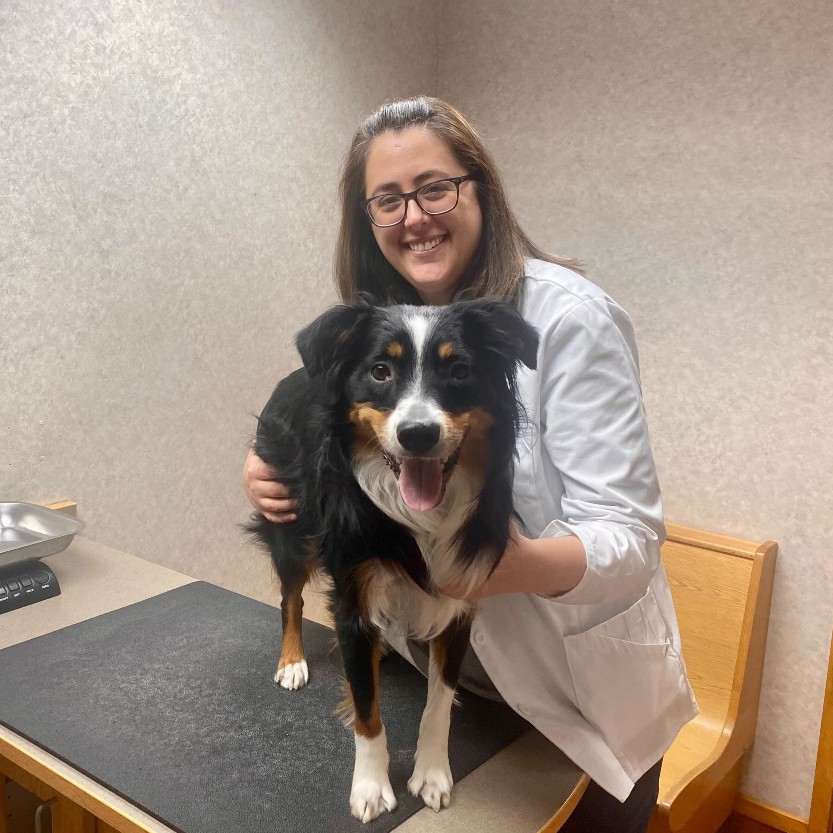
CHFA now offers Behavioral Consultations
Your love for your pets can overcome anything, but at times their behavior causes stress and friction for the entire family, especially when you don’t know where it’s coming from or what to do about it. Whether the cat has stopped using his litter box or the dog is barking at strangers during his walk, these issues make life difficult for everyone.
Dr. Holly Mincks understands this feeling first hand, and that is one of the reasons she is passionate about providing behavioral consultation for CHFA and BVAC.
“I think of myself as a middle man between your average regular general practitioner vet and a behavior specialist,” Dr. Mincks said. “There are vets that go on for additional schooling and additional degrees to have a specialist degree. I don't have that schooling, but I have more experience than your regular vet. One thing that the general public probably does not know is that behavior is not part of the typical vet school curriculum. So we don't have to take any classes on animal behavior, but it makes up a large part of the questions that we get from pet owners every day. They're always asking us, ‘Why does my dog or cat do this?’
Dr. Mincks’ consultations help her find a potential root cause of the behavioral issue and make a decision for next steps. “When someone is experiencing behavioral problems with their pet, they schedule an appointment with me where I get to know the background: I identify what their major concerns are, any potential underlying issues or underlying causes. We talk about what goals we want for their pet, and set a plan in place for how to achieve those goals.”
Different pets, different issues, different solutions
Dr. Mincks uses her training and experience to tailor a plan that’s specific to the pet’s issues. For cats these issues include pooping or peeing outside the litter box, proper grooming, and inter-cat aggression. For dogs, she can help treat aggression, biting, snapping, growling, lunging, separation anxiety, excessive barking, resource guarding, and fear of strangers.
“My approach is twofold,” she said. “I talk about medications and supplements because that can help facilitate other things that we do, training or behavior modification.”
“Behavior medicine is not a one-size fits all, ‘here's the magic pill.’ It's a partnership. I'm hoping to partner with the pet owner to help their pet be their best self and live their best life and make their home more harmonious,” said Dr. Mincks. If necessary, Dr. Mincks will refer the client to a behavioral specialist if the problems persist. “But my goal is to help those people that need it where I can.”
The best kind of experience
Not only has Dr. Mincks been performing consultations on her own for about a year, she has experience shadowing local behaviorists and behavior specialists. Her most valuable experience, though, was with a special dog named Calixte. “When I was in vet school at Ross University, Calixte was one of the dogs living on campus as a real life model for the vet students,” she said. Dr. Mincks was assigned to walk Calixte for a week during her first semester. “He was highly reactive. He would lunge at everything: cars, trucks, other people, other animals,” she said. “He wasn’t a warm, fuzzy, lovable type of dog. But I noticed that he just seemed anxious. I realized that if I took him away from the things that caused him anxiety—an approaching car or truck, for example—and stood quietly with him in the grass, his behavior and personality completely changed.”
“I started to think, maybe he's so reactive because he is always stressed and he is always anxious, and he is always on edge because he doesn't like other dogs, and he is being forced to be around them all the time in the kennels, and how stressful that must be,” she added. “And so I offered to foster him in my home. I did that during vet school and he became a completely different dog.”
Dr. Mincks worked with a behaviorist at Ross to help her manage Calixte’s issues. “We had so many fun adventures. Calixte became my one-in-a-million dog because I gave him a chance. I really got to see the role that behavior and addressing behavior can play in that human-animal bond.”
If your family is struggling with behavioral issues from your pet, give us a call to set up an appointment, and fill out the behavioral consultation form here!



